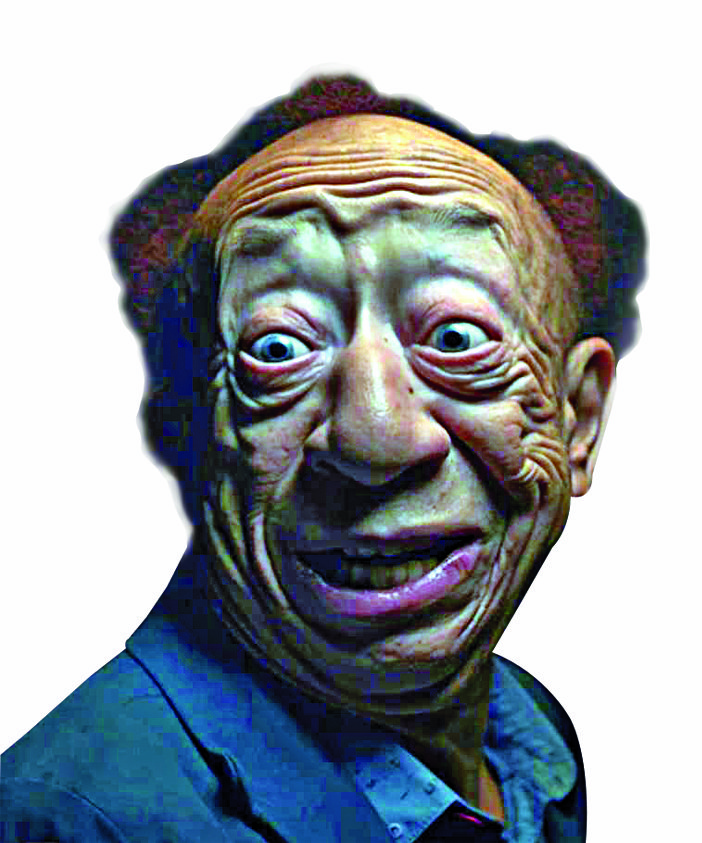
If you’ve seen the portraits painted by Spanish painter Pablo Picasso or Irish artist Francis Bacon, then you may perhaps find it easy to understand Prosopometamorphopsia (aka PMO). A rare condition in which the person affected by PMO disorder sees other people’s facial features distorted, demonic, or warped. Victor Sharrah (59), suffering from PMO, woke up on one winter day, three years ago in Nashville to see people’s faces around him ‘less-human’ or demonic. People appeared with their ears, noses and mouths stretched backwards to Victor, along with deep penetrating grooves in their cheeks, chins and foreheads!
A Rarity
Prosopometamorphopsia is a condition where faces generally appear to be distorted, sometimes even demonic. The real face of the person here may appear to be different or petrifying, making it difficult for those suffering from it to decipher distortions from reality!
One should not confuse PMO with prosopagnosia (poor face recognition but without visual distortions). PMO in
this case seems to be an extremely rare condition. People diagnosed with it tend to perceive faces as stretched, out of position or place, abnormally larger or smaller or simply as a droopy face.
Possible Causes
In 2021, researchers in the Netherlands reviewed 81 cases of PMO. The causes ranged from brain infarction (disrupted blood flow to parts of the brain), haemorrhagic stroke (bleeding into the brain), and any surgery complications or brain tumours or injuries. In around 24% of cases, there were no structural abnormalities found in the brain. Other diagnoses found to be associated were migraine conditions, epilepsy and schizophrenia.
While the distortions take time to happen, perhaps a few seconds. Those who suffer from PMO usually rely heavily on secondary cues such as the person’s voice or clothes.
Dr Khan explains that individuals with PMO also may perceive facial distortions with certain features and facial expressions of the eyes, nose or mouth appear warped, shrunken, enlarged or brutally misplaced. Dr Khan adds, “The experience can vary among individuals, with some seeing grotesque or cartoon-like distortions.”
Psyche Burn
“Prosopometamorphopsia is rare but very distressing,” says Dr. Madhur Rathi, MBBS MD, Consultant Psychiatrist, Noida. He explains that people with PMO tend to resort to forms of social isolation to avoid feelings and moments of discomfort and a heightened fear of being exposed to the very possibility of viewing faces. He opines that a condition like PMO can sadly also lead to loneliness. “The struggle to identify faces usually adds to the cognitive overload and stress levels of patients putting them at a higher risk of anxiety and depression” explains Dr Madhur.
However, he stresses that along with the treatment of neurological triggers and causes, it is imperative to equally address psychological conditions. Adding, “Medications and therapy can help to address clinically significant issues along with counselling and social support.” The treatment options for PMO are focused on managing underlying triggers such as treating migraines, epilepsy or simply helping the patient to relieve stress.
Few in Numbers
Victor’s PMO struggles helped spread awareness about this rare disorder. Fewer than 100 cases have been reported ever since 1904. For the first time, researchers were able to reproduce a digital representation of the warped faces that appear to persons suffering from PMO. Dr Khan, “PMO is a fascinating but rare condition that highlights the complexity of the brain’s visual processing capabilities.”
“The struggle to identify faces usually adds to the cognitive overload and stress levels of patients putting them at a higher risk of anxiety and depression” — Dr. Madhur Rathi, MBBS MD, Consultant Psychiatrist, Noida
“The experience can vary among individuals, with some seeing grotesque or cartoon-like distortions.” — Dr. G M Khan
